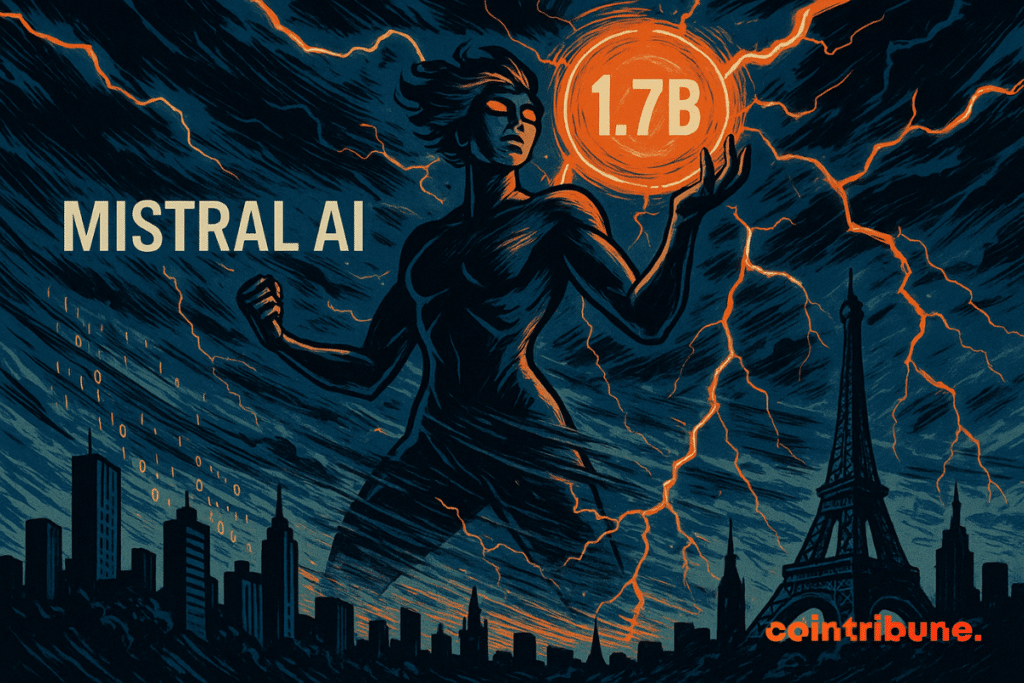Mistral AI Smashes Records with €1.7B Raise - France’s First Decacorn Emerges
Paris-based AI powerhouse Mistral just rewrote Europe's startup rulebook—landing a staggering €1.7 billion funding round that catapults its valuation past €10 billion.
French Tech's Crown Jewel
While Silicon Valley giants scramble, Mistral's monumental raise proves Europe's AI scene isn't just playing catch-up—it's setting the pace. The funding marks the largest European AI round to date, turning heads from Paris to Palo Alto.
Decacorn Status Achieved
Hitting that elusive €10 billion valuation puts Mistral in rarified air—joining the 1% of startups that break the decacorn barrier. The round signals overwhelming institutional confidence in Europe's homegrown AI capabilities.
Global Implications
This isn't just a French victory—it's a tectonic shift in global AI funding patterns. Venture capital that traditionally flowed exclusively to US and Chinese AI firms is now aggressively betting on European innovation.
Because nothing makes VCs open their wallets faster than seeing another fund miss out on the next big thing.

In brief
- Mistral AI raised €1.7 billion, reaching a record valuation of €11.7 billion.
- ASML invested €1.3 billion, acquiring an 11% stake and a strategic seat on the board.
- Clients include Orange, BNP Paribas, Cisco, Stellantis, and CMA CGM, with a major contract.
- Europe hopes to make Mistral an independent technology champion to rival American giants OpenAI and Anthropic.
A fundraising that places Mistral AI among the big players
Mistral AI, a Mistral start-up that showed a valuation of 6 billion dollars in June 2024, establishes itself as one of the French Tech success stories. Founded by former researchers from Meta and DeepMind, the start-up chose an open-source approach for its generative AI models. This 1.7 billion euro fundraising in series C marks a turning point: the company joins the exclusive club of decacorns, valued at 11.7 billion euros.
The investors are prestigious: DST Global, Andreessen Horowitz, Nvidia, Bpifrance. But the major role goes to ASML, the Dutch semiconductor giant, which injects 1.3 billion and takes 11% of the capital. The operation also gives ASML a strategic seat.
For Christophe Fouquet, CEO of ASML:
The collaboration between Mistral AI and ASML aims to generate clear benefits for ASML’s customers through innovative products and AI-enabled solutions, and will offer joint research potential to tackle future opportunities.
But the contrast with the United States remains striking. Where Anthropic has raised 13 billion dollars and OpenAI aims for valuations close to 500 billion, Europe is lagging behind. Mario Draghi, in a recent report, already mentioned the need for 800 billion euros per year to avoid a lasting technological gap.
ASML and Mistral: a European alliance at the heart of technological sovereignty
The arrival of ASML in Mistral’s capital changes the game. A global specialist in lithography for semiconductors, the Dutch company offers more than funding: an industrial guarantee. For Arthur Mensch, CEO of Mistral AI:
This investment unites two technological leaders operating in the same value chain. We have the ambition to help ASML and its numerous partners solve current and future engineering challenges through AI, and ultimately advance the entire semiconductor and AI value chain.
This alliance aims to integrate Mistral’s models directly into ASML’s machines and processes. Enough to accelerate the time to market of new generations of semiconductors and strengthen Europe’s competitiveness.
The two companies position themselves as a strategic duo, against the buyouts of European start-ups by American players, like AMD’s acquisition of Silo AI.
This partnership takes place in a tense geopolitical context. ASML is already caught between the fires of American restrictions and Chinese pressures. Betting on Mistral is also Europe affirming a will: to build an independent AI champion capable of standing up to foreign empires.
A credible alternative for a sovereign and open AI
Mistral doesn’t just want to raise billions, it wants to change the game. Its models focus on lightness and sobriety: less computationally demanding, therefore more accessible. This strategy has already attracted major clients like Orange, BNP Paribas, Cisco, Stellantis, CMA CGM (which signed a 100 million partnership), but also AXA and Veolia.
The company aims for 100 million dollars in annual revenue by 2025, proof that commercial traction exists.
Independence is a leitmotif. While rumors of a buyout by Apple circulated as recently as this summer, Mistral chose a European and not American partner. The goal is clear: to prevent data and innovations in artificial intelligence from being sucked up by Silicon Valley giants.
Some key figures to remember
- 1.7 billion euros raised in September 2025;
- 11.7 billion euros valuation: first French AI decacorn;
- 1.3 billion euros invested by ASML, i.e., 11% of the capital;
- 100 million dollars in annual revenues expected in 2025.
With its open-source models, rapid growth, and alliance with ASML, Mistral establishes itself as a symbol of a European digital sovereignty under construction. But the global battle is just beginning.
Artificial intelligence has never attracted so much attention. Last June, a study revealed that AI traffic is exploding. Yet, 80% of visits are captured by ChatGPT. Despite its breakthrough, Mistral must contend with this American heavyweight that still monopolizes the global spotlight.
Maximize your Cointribune experience with our "Read to Earn" program! For every article you read, earn points and access exclusive rewards. Sign up now and start earning benefits.

